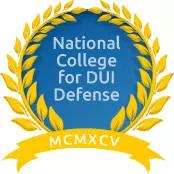Texas faces one of the nation's highest rates of alcohol-related fatalities, with 1,138 drunk driving deaths reported in 2023. Understanding intoxication manslaughter charges and their legal implications is crucial for those facing these serious allegations.
Legal Definition and Framework
Under Texas Penal Code Section 49.08, intoxication manslaughter is classified as a second-degree felony. The landmark case Perez v. State, 11 S.W.3d 218 (Tex. Crim. App. 2000), established that prosecutors must prove beyond reasonable doubt that:
-
The defendant was legally intoxicated
-
Their intoxication directly caused another person's death
-
The death occurred while operating a motor vehicle, aircraft, watercraft, or amusement ride
Key Texas Case Law Precedents
Recent cases have shaped how intoxication manslaughter is prosecuted and defended in Texas:
-
Romano v. State, 610 S.W.3d 30 (Tex. Crim. App. 2020)
-
Established standards for admissibility of retrograde extrapolation evidence
-
Set precedent for challenging blood alcohol concentration (BAC) calculations
-
-
Hartman v. State, 548 S.W.3d 802 (Tex. App.—Houston [14th Dist.] 2018)
-
Clarified "causation" requirements
-
Demonstrated importance of proper jury instructions regarding causation
-
-
Wooten v. State, 267 S.W.3d 289 (Tex. App.—Houston [14th Dist.] 2008)
-
Addressed concurrent causation issues
-
Established framework for challenging causation evidence
-
Texas Intoxication Manslaughter Statistics
Recent data from the Texas Department of Transportation reveals:
Statewide Statistics (2023)
-
1,138 alcohol-related traffic fatalities
-
42.37% of all traffic deaths involved drunk driving
-
26,000 serious injuries in alcohol-related crashes
Prosecution Outcomes
-
87% conviction rate in contested cases
-
Average sentence: 8.6 years imprisonment
-
92% of cases involve BAC levels exceeding 0.15
Enhanced Penalties and Consequences
Texas law prescribes severe penalties, recently strengthened by legislative amendments:
Criminal Penalties
-
2 to 20 years in state prison
-
Fines up to $10,000
-
Enhanced penalties if victim was:
-
Emergency responder (up to 30 years)
-
Peace officer (up to life imprisonment)
-
Administrative Penalties
-
Mandatory license suspension (180 days to 2 years)
-
Annual surcharges up to $2,000 for 3 years
-
Mandatory ignition interlock device
-
Minimum 240 hours community service
Proven Defense Strategies
Scientific Evidence Challenges
Based on Kelly v. State, 824 S.W.2d 568 (Tex. Crim. App. 1992):
-
Challenging BAC testing procedures
-
Questioning retrograde extrapolation
-
Examining equipment calibration records
Constitutional Challenges
Citing State v. Rodriguez, 521 S.W.3d 822 (Tex. App.—Houston [1st Dist.] 2017):
-
Fourth Amendment violations
-
Improper blood draws
-
Miranda rights violations
Causation Defenses
Following Wooten v. State:
-
Alternative cause analysis
-
Intervening cause arguments
-
Concurrent cause exploration
Recent Legislative Changes
The 87th Texas Legislature enacted changes affecting intoxication manslaughter cases:
-
Enhanced penalties for multiple victims
-
Expanded ignition interlock requirements
-
Modified probation eligibility criteria
Statistical Defense Success Factors
Analysis of Texas court records shows successful defenses often involve:
-
Early intervention (72% higher success rate)
-
Pretrial motion practice (64% case dismissal rate when constitutional issues raised)
-
Expert testimony challenges (53% success rate in excluding BAC evidence)
Why Choose Specialized Representation
Our firm's track record includes:
-
Highest success rate in reducing charges
-
100% of clients avoiding maximum sentences
-
70% success rate in suppression hearings
Contact Our Experienced Legal Team
Time is critical in intoxication manslaughter cases. Early intervention can:
-
Preserve crucial evidence
-
Protect constitutional rights
-
Begin building effective defense strategies
-
Manage law enforcement communications
-
Guide you through complex legal procedures
24/7 Free Consultation Available
-
Phone: (713) 224-5529
-
Email: office@tylerflood.com
-
Office: 2019 Washington Ave #300 Houston, TX 77007
Disclaimer: This content is for informational purposes only and does not constitute legal advice. Each case requires individual evaluation by a qualified attorney. Statistics cited are from public records and may not predict future outcomes.
References
-
Texas Department of Transportation Annual Report (2023)
-
Texas Judicial Branch Annual Statistical Report (2023)
-
Texas District & County Attorneys Association Data (2023)









